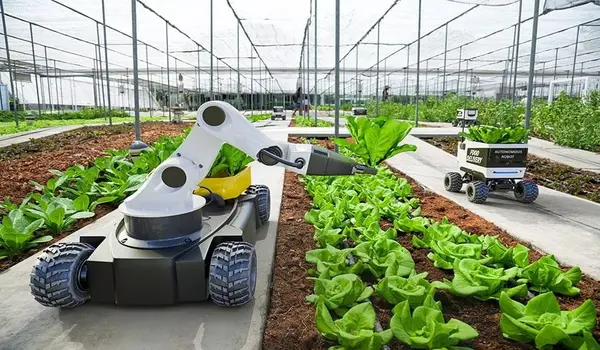Introduction Bulkagrochem is a pioneering force in agricultural biotechnology, committed to enhancing farming practices through innovative technology. We specialize in providing cutting-edge solutions that support sustainable farming, improve crop yields, and optimize resource use. Our dedication to integrating advanced technology into agriculture helps farmers navigate modern challenges and achieve superior results. By leveraging our expertise, farmers can harness technology to boost productivity, efficiency, and environmental stewardship in their farming operations. Benefits of Agricultural Technology Increased Efficiency: Advanced technologies streamline various farming processes, from planting and irrigation to harvesting, leading to time and labor savings. Enhanced Precision: Precision agriculture technologies allow for accurate application of inputs like water, fertilizers, and pesticides, reducing waste and improving crop health. Improved Crop Yields: Technology-driven methods, such as precision planting and smart irrigation, contribute to higher crop yields by optimizing growing conditions and resource use. Data-Driven Decisions: Technology provides farmers with valuable data on soil health, weather patterns, and crop performance, enabling informed decision-making and strategic planning. Resource Conservation: Modern technologies help conserve resources by minimizing excess use of water, nutrients, and energy, promoting sustainable farming practices. Cost Reduction: Automation and technology-driven solutions reduce the need for manual labor and decrease operational costs, enhancing overall profitability. Disease and Pest Management: Technologies such as remote sensing and drones help detect and manage pests and diseases early, reducing crop losses and improving yields. Sustainability: Advanced technologies support sustainable farming practices by reducing environmental impacts and promoting long-term soil health. Main Methods of Using Technology in Farming Precision Agriculture: This approach utilizes GPS and IoT sensors to monitor and manage field variability in crops. By analyzing data on soil conditions, crop health, and weather patterns, farmers can make precise adjustments to inputs like water and fertilizers, optimizing yields and reducing waste. Drones and Remote Sensing: Drones equipped with cameras and sensors provide aerial views of crops, allowing farmers to assess plant health, monitor growth, and identify pest infestations or nutrient deficiencies. This technology enables timely interventions and better management decisions. Automated Machinery: Modern tractors, combines, and planters are equipped with automation technology that improves efficiency and precision in planting, harvesting, and soil management. Automated systems reduce the need for manual labor and enhance operational efficiency. Smart Irrigation Systems: These systems use sensors and weather data to optimize irrigation schedules, ensuring that crops receive the right amount of water at the right time. This technology conserves water and improves crop growth by preventing over or under-watering. Farm Management Software: Comprehensive software platforms integrate data from various sources to help farmers manage their operations more effectively. These tools offer features for tracking crop performance, managing resources, and planning for future seasons, all from a single interface. Conclusion Technology is revolutionizing the way farmers manage their operations, offering tools and solutions that drive efficiency, precision, and sustainability. At Unicrop Biochem, we are committed to supporting farmers in adopting and integrating these technological advancements to enhance their productivity and resource management. By leveraging technologies such as precision agriculture, drones, automated machinery, smart irrigation systems, and farm management software, farmers can optimize their practices, improve crop yields, and achieve long-term success. Embracing technology not only helps farmers stay competitive in a rapidly evolving industry but also contributes to a more sustainable and efficient agricultural future.
Bulkagrochem
Submit your contact number & get exciting offer
Bulkagrochem.com
Bulk Purchase & Get Bulk Discount
Share your number to receive customized bulk pricing, availability updates, and exclusive offers directly via WhatsApp.

Recommended Products



